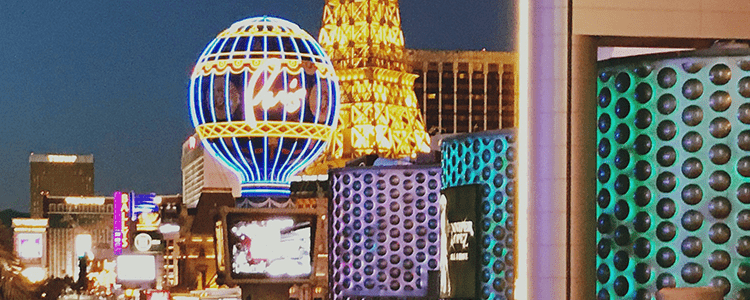Nevada
Cannabis in Nevada
Common questions about cannabis in Nevada
- Is marijuana legal in Nevada?
- Where can I buy marijuana in Nevada?
- How much marijuana can I buy in Nevada?
Get your medical marijuana card online!

Nevada Cannabis Laws
Is Weed Legal in Nevada?
Yes, both medical and recreational marijuana is legal in the state of Nevada. The Medical Use of Marijuana Act was approved by Nevada voters in the year 2000 with a 65.4% majority vote. This act also legalized the cultivation of marijuana for medical use in the confines of registered users. Despite the use of medical marijuana being legalized in 2000, it wasn’t until five years later in 2015 where medical marijuana transactions took place.
On November 8, 2016, the Regulation and Taxation of Marijuana Act legalized the purchase, possession, and consumption of marijuana for adults 21 and older. On the first of January 2017, recreational cannabis sales began taking place.
Buying Marijuana in Nevada
In January of 2017 licensed marijuana retailers began selling cannabis to adults 21 and up. Followed by this, the state of Nevada also allowed retailers and cultivators to work with registered employees to deliver marijuana to residents across the state.
Buying Marijuana at a Retail Location
At the start of 2017 when recreational marijuana became legalized many medical dispensaries became dual-licensed facilities allowing for the sale of both medical and recreational marijuana in their stores. Government rules and regulations outline the number of dispensaries that are allowed in each county of Nevada due to its population and size. For example, 80 dispensaries were allocated to Clark County based on its larger size while only 20 were allocated to Washoe County.
Using a Marijuana Delivery Service
Due to Nevada’s governing rules and regulations, contracted retailers and dispensaries alike are able to deliver marijuana to individuals under the following guidelines. Marijuana is not to be delivered to any business establishments - especially to the Las Vegas casinos. For each delivery, only an ounce or less can be delivered and at any time in the driver’s car there cannot be more than five ounces. Finally, each customer must prove their identity by cross-referencing their valid government-issued ID with the ID of the order. No third-party companies are allowed to deliver marijuana as tracking the validity of the sale would become compromised.
Store Hours
Each operating dispensary’s store hours must be authorized by Nevada’s state government and they cannot under any circumstance operate outside of the approved timeframe. Store hours are permitted to change under each county’s jurisdiction. For example, Las Vegas has allowed their dispensaries to operate between 6:00 a.m. and 10:00 p.m. Reno, on the other hand, allows dispensaries to stay open later till 12:00 a.m.
Purchasing Restrictions
Nevada has issued purchasing restrictions to all dispensaries across the state. These restrictions allow for no more than an ounce of cannabis to be purchased at one time. Regarding concentrates, only 1/8 of an ounce of concentrate can be purchased at one time from recreational dispensaries.
Medical marijuana purchase restrictions differ from recreational cannabis. A patient with a valid medical marijuana card is allowed to purchase up to 2.5 ounces every two weeks. This 2.5-ounce rule also applies to concentrates or any other form of marijuana.
Available Products
There are no restrictions on what types of products can be offered within Nevada dispensaries. With continuing advancements in the cannabis industry, Nevada is offering a wide range of products along with great bud. From concentrates to edibles and various medical creams, you can find all your favorite marijuana products across Nevada.
Taxes on Marijuana in Nevada
Taxes on Recreational Marijuana in Nevada
Recreational marijuana follows a three-part tax rule. The first tax is an excise tax that is calculated on the first wholesale sale. This means the cultivators have to pay the state government based on the Fair Market Value. Next, a sales tax is tacked onto the good which is based on Nevada’s very own sales tax. Finally, an additional 10% excise tax is added to the price when the goods are actually purchased by the consumer.
Taxes on Medical Marijuana in Nevada
Purchasing medical marijuana as a valid cardholder does in fact reduce the taxes one must pay. While the initial two taxes remain the same as above (the first 15% excise tax in addition to the sales tax), medical marijuana users are not required to pay the second 10% excise tax.
Possession
Similar to the purchasing restrictions of recreational and medical marijuana in Nevada, the legal possession limit is the same. For recreational users, adults 21 and up can legally possess up to an ounce of cannabis flower, with concentrates up to 1/8th of an ounce.
For medical marijuana users, as mentioned above, the legal possession limit is 2.5 ounces of cannabis or concentrates.
Using Marijuana in Nevada
If you are 21 or older in the state of Nevada, you are allowed to consume cannabis although with restrictions to where it can be consumed. Keep in mind that the list of places where you can’t consume cannabis far exceeds the list of places you can. However, the general rule of thumb to remember is that if you aren’t in the privacy of your own home or residence you most likely cannot smoke or ingest marijuana. Those in violation of these rules are to be charged with a misdemeanor with possible jail time and up to a $1,000 fine.
Areas in Nevada that DO allow the use of marijuana:
- The privacy of your own home or property away from the public eye.
- There is currently one social lounge to consume cannabis in Nevada
- In some rare cases, a hotel may allow you to consume cannabis. Be sure to check the hotel’s website or with the staff. Even if you have a smoker’s room, you likely cannot smoke cannabis under hotel policy.
Areas in Nevada that DO NOT allow the use of marijuana:
- Any public or federal lands. This includes national parks.
- Casinos
- Anywhere in the public eye
- Automobiles, regardless of it they are in motion or not
Smoking on Federal Land
Because marijuana is illegal on a federal level in the United States, smoking on federal lands is by nature illegal. Simply possessing cannabis on federal lands will constitute a fine, a possible misdemeanor and potential jail time.
Medical Marijuana in Nevada
Whether you are an in-state or out of state medical marijuana user, Nevada allows for all with valid medical marijuana cards to purchase marijuana in Nevada. With the advance of recreational marijuana, most dispensaries in Nevada have become dual serving dispensaries with medical and recreational options to serve all. Medical marijuana in Nevada also comes with tax benefits as the final 10% excise tax is exempt for medical users. The state of Nevada also allows for medical patients to purchase and possess larger quantities of cannabis or concentrates.
How to Get a Medical Marijuana Card in Nevada
1. Obtaining a medical marijuana card in Nevada is now easier than ever with a five-step process:
2. The first step in obtaining an MMJ card is to fill out an application and send it to the Department of Health and Human Services along with a $25 application check.
3. Next, the Department of Health and Human Service of Nevada will send you additional paperwork for your health professional to complete.
4. You must schedule an appointment with a valid medical marijuana doctor and fill out the paperwork together.
5. After completion of the paperwork, you must send it to the Department of Health and Human Services with either a $50 check for one year or a $100 check for 2 years.
After the state performs a background check and approves your request, the state will issue you a medical marijuana card.
Out of State Medical Cards Nevada
Nevada allows anyone with a valid medical marijuana card to purchase marijuana in Nevada. However, the user must check to confirm the following items:
- A valid and non-expired MMJ card
- The medical marijuana user’s state must exempt criminal prosecution for the use of medical marijuana
- The physicians in the user’s home state must also advise for use of marijuana legally
- Nevada police department must be able to see the validity of your mmj card
How to Transport Marijuana in Nevada
Transporting Marijuana in Nevada
When transporting marijuana in Nevada, the police take it very seriously. Therefore, cannabis consumers must ensure that marijuana is sealed and out of reach of the driver. Failure to do so will result in an open container fine. If there are minors in the car and the marijuana is not properly sealed and away from the driver, the owner of the marijuana could be charged with aggravating circumstances.
Driving While Under the Influence of Marijuana
Driving under the influence of marijuana is illegal in all states across the U.S. In the eyes of the Nevada police department, any amount of cannabis puts the driver in an impaired state which leads to serious punishments akin to drinking and driving.
Driving Across State Lines with Marijuana
Since state boundaries are governed on a federal level, crossing state borders with cannabis is a federal offense that results in serious trouble. Therefore, if you have leftover cannabis or are approaching a state boundary, return your cannabis to a local dispensary and remember to never attempt crossing the state line.
Growing Marijuana In Nevada
Under the state law of Nevada, residents are permitted to cultivate cannabis in the privacy of their own home but ONLY if there is not a dispensary within a 25-mile radius of your home. If you currently live 25 miles from the nearest dispensary then you are allowed to grow up to 6 plants per person but no more than 12 per household. The plants must be grown in some sort of concealed room such as a closet or greenhouse that is equipped with a lock or some other working security system. Finally, the plants must not be visible to the public eye and the grower must own the property or have some sort of explicit legal permission from the owner.


